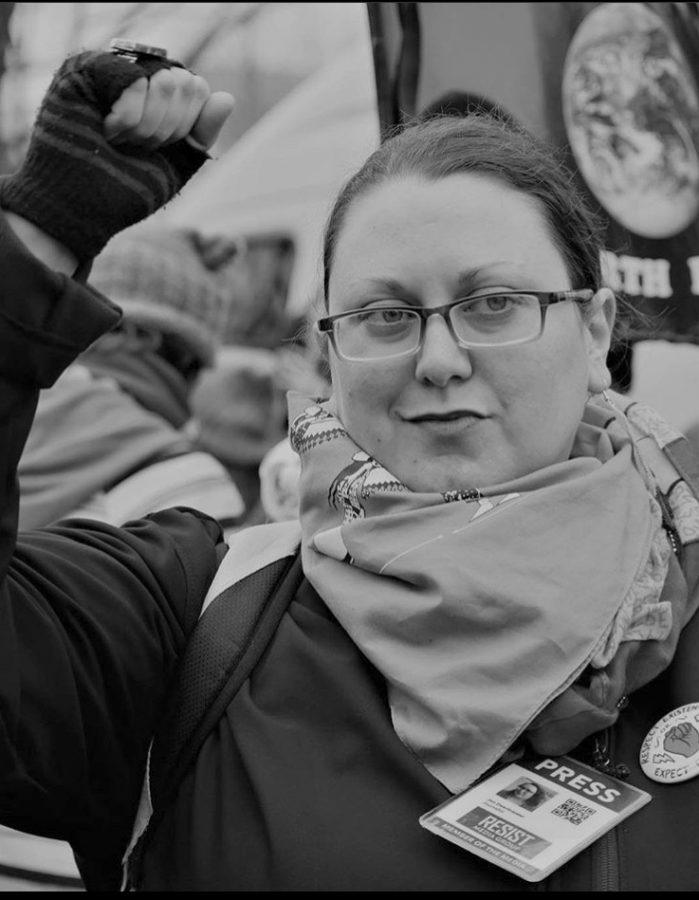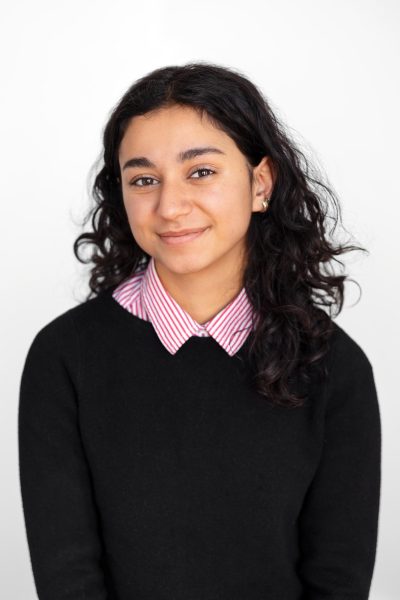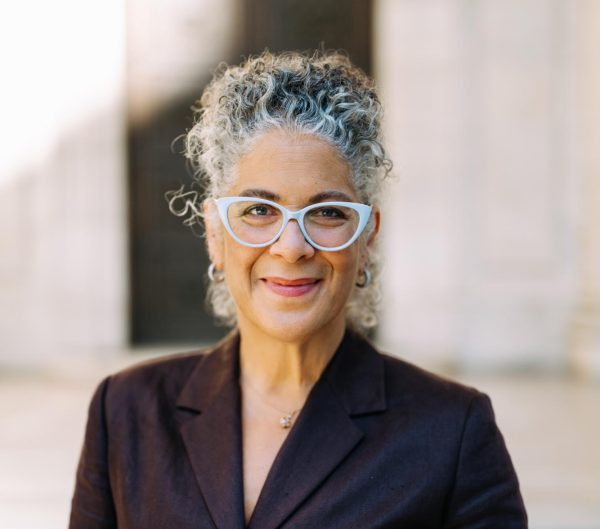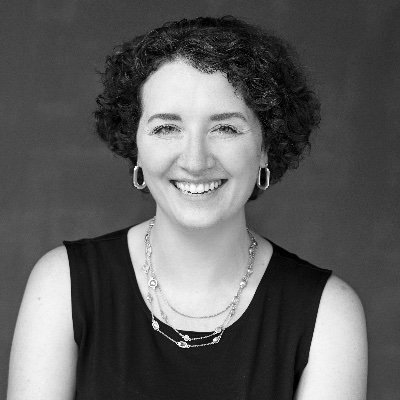Off The Cuff: Jen Deerwater, Indigenous Activist and Journalist
Photo courtesy of Jen Deerinwater
Jen Deerinwater
Jen Deerinwater is a citizen of the Cherokee Nation of Oklahoma, bisexual, Two Spirit, multiply-disabled journalist, and organizer. Deerinwater writes on a variety of topics, including national politics, reproductive justice, ableism, resource extraction, and justice for indigenous communities. Deerinwater is a contributor at Truthout, a Freedomways and New Economies Reporting Project fellow, and the Founder and Executive Director of Crushing Colonialism, an international, Indigenous multi-media collective. Deerinwater’s work has also appeared in numerous publications and anthologies. Several campus departments and organizations invited Deerinwater to campus — including the Comparative American Studies program, the Environmental Studies program, the Multicultural Resource Center, and Students for Energy Justice — to deliver a talk titled “Resource Extraction and Environmental Racism’s Impacts on Native Communities,” which took place on Tuesday.
This interview has been edited for length and clarity.
Could you speak a little bit about your work in general?
I’m a freelance journalist. I originally worked in the political world — I ran electoral-issue-based campaigns for years. I eventually got tired of that and felt like that world was not the way to get free; it wasn’t the way to bring revolution and to take care of me and my communities and other oppressed communities. So I eventually got into journalism. I’ve been writing since I was a kid, but I felt like journalism was a way to use the natural gifts and talents that I have to also expose the corruption and the injustices in the world and to help … tell the stories of people who are often not heard. And so for me, that includes my communities: indigenous people, Two-Spirits, bisexuals, disabled folks, and other communities as well that are not often heard.
Crushing Colonialism is an international indigenous multimedia media collective. We’re still a fairly new organization. We have some presence online, but we’re still in those early phases of building a board of directors, an advisory committee, and all those non-glamorous things that you have to do to start an organization. But the idea is that we will help provide support to indigenous multimedia makers across the world. Those supports will be the things that we often don’t get — grants, fellowships, professional representation, agents, managers, access to attorneys who know not just the colonizer’s law, but also tribal law to help with contract negotiations. Eventually I’d like to have a research arm of the organization where we look at the state of indigenous people in journalism; for example, how many indigenous people are running newsrooms? How many of us are editors? What kind of money are we making? Things of that nature.
Can you talk about how you first got involved in Standing Rock and other pipeline resistance camps?
I’ve always considered myself an environmentalist. I feel like that label isn’t even entirely accurate because as an indigenous person it’s my responsibility to do this work, to take care of the land, to be a steward of the land. That is one of my duties as an indigenous person, so it’s always been something I cared about. But in terms of issues, for a really long time I worked more on things like pro-choice issues or LGBTQ issues and such. But as I was in that world and I explored more and I thought more about my own oppressions and the intersections of those and the intersections of oppressions for other people, I realized the work I was doing wasn’t enough. And that kind of brought me into environmental justice as I learned more about the reproductive health impacts of resource extraction as well as the violence that it brings to native communities by bringing in these large camps [of men].
As I learned more about those things … just in conversation with my communities, I learned that, “Oh hey, I’m not the only disabled person who’s been raped.” A lot of us have, you know, so it was realizing those things that kind of brought me, oddly enough, to Standing Rock. For me it’s about stopping the pipeline, stopping the mining, all of that. But it’s also just all of the human rights abuses and injustices that go with it. After my first trip to Standing Rock, I was forever changed. I was pretty radical before and now I’m very radical. I don’t believe in law enforcement. I don’t believe in the criminal injustice system. I saw too much out there and experienced too much. But it also kept me motivated to stay in the environmental justice movement.
I went from covering the Dakota Access Pipeline to covering Energy Transfer Partners Mariner East Two, which runs through Ohio, West Virginia, and Pennsylvania. And then from there, I’m kind of a research nerd. I just dug in, and it was like, “Oh, I wonder what this means. Let me do a little more digging.” And then I saw this interconnectedness that it is not just pipelines, it’s not just mining — it’s this push to take all of the dirty fossil fuels possible from the Earth and to hell with the outcomes, basically.
So from your perspective, in the context of these sites of resource extraction, what does repair look like? Could there be repair?
Well, nothing’s going to ever undo what’s been done. That’s just not possible. But there are things that can be done and that starts with giving us back our lands — and when I say our lands, I don’t mean that in terms of private property. I mean that in terms of where we are from and who we are. Who we are as a people is so intrinsically tied to the lands — our ancestral lands. So that’s the first one. As there’s been more conversation around reparations for Black folks, some people have said, “Well, let’s pay the Native Americans.” Well that’s not really what a lot of us are looking for. Most of us want our land back. For the Lakota people there’s millions of dollars staying in a trust for the Black Hills that they won’t take because they just want their Black Hills back.
So that’s one of the first ones: Give us our land back. Honor the treaties, honor our tribal sovereignty. We are the only people that can make decisions about what we need and what is best for our people. We don’t need outsiders coming in and doing that. We do need support though. We need the American government to get out of our way so that we can practice sovereignty. There needs to be a program in place of coming in and cleaning up all the destruction that’s been done to our land, you know, uranium, copper mining, coal mining, all of that. That cleanup needs to happen and that … needs to happen for everybody really.
Is there a defining moment that helped shape who you are as an activist?
I haven’t really talked about this publicly much, but I have been thinking about writing on it, so I’ll go ahead and share it with y’all. I think the really defining moment for me was when I was an undergrad at [the University of] Southern California, and I originally was a music student. So before I got into politics, before I got into journalism, I was in music. I had a really bad experience with the director and a professor in [The USC Thornton] Music Industry program.
Everyone in the program at that time that was a professor, they were men, all cis men. There were no women involved. Most of the students, at least that were in the major versus the minor, were mostly cis men. There was a lot of sexual harassment, and I reported it and then the director of the program retaliated and made some false claims about me. And then another professor did the same and I spent six months fighting the university to get reinstated into my major, get my financial aid back, all of this stuff.
I think that was probably it for me. I always knew that institutional oppression existed. I knew discrimination existed. I’m a survivor of a lot of violence, including as a child … so I knew those things. But I think that was like the first time I really directly felt the weight of institutional oppression aimed at me. And that changed me. I dropped Music Industry as a major, picked up Gender Studies and [Political Science] and became a lot more active and vocal and based on that experience, really I think.
The national presidential election is happening right now and you’ve written pretty extensively about Elizabeth Warren and her claiming indigenous heritage. I’m wondering if you could speak a little bit about that and maybe particularly speak to somebody who is excited by her candidacy, but unsure of how to navigate that particular moment of who she is.
I think the first thing I should say is that I went from being a super voter who ran political campaigns, who was being groomed and planning to run for office, to being someone who feels like voting is just pointless. Especially for me as a resident of Washington D.C. I have no real say in what happens in even my municipal government let alone the federal government. I’ve just learned that in general, I can’t look to politicians and I can’t look to the United States to get me free. This is a government that never meant for me to exist, so of course these are people that are not going to be there for me and my communities and other indigenous people. As far as Elizabeth Warren goes, there are some things about her I like. You know, she was my Senator when I lived in Massachusetts for a while.
I did vote for her, but you know, she’s kind of your typical cis, white, able-bodied, heterosexual woman with power. Before she decided to run for office, she never talked about racism. She never talked about violence against Indigenous women. She didn’t even acknowledge Indigenous people other than these false claims of Cherokee and Delaware heritage. So for me, you don’t get to claim something that is not yours — and she is not Indigenous. It’s been proven time and time again. She’s not one of us. All of us Cherokees have repeatedly said she’s not one of us, and we’re actually one of the best-documented people in the Earth. There were 35 different censuses taken on us, so we know who our people are. If you claim to be one of us, we can find out for real if you’re one of us and she’s not.
Furthermore, I think what I find the most upsetting is that not only is she not one of us, and she’s making claim to people who have suffered and continue to suffer … historical and intergenerational trauma and genocide and violence, but her family actually profited off our genocide. Rebecca Nagle wrote an article detailing Elizabeth Warren’s family — she had a family member who fought in wars in Tennessee, killing our people. They basically went and stole land from us in Oklahoma. So not only is this someone who makes this false claim, but she’s profited off our loss. And even if she was one of us, she hasn’t done anything for us. She never has. The only reason she’s talking about Indigenous people now is just to save her own self. I don’t know what else to say. You know, she’s a racist … she’s also a capitalist. She’s owned that. I don’t think she’s to be trusted, but I also don’t think any of the candidates are to be trusted.
I’m wondering if you can speak about how disability justice and environmental justice intersect?
I don’t see how other people don’t see the intersections of it. The degradation of the environment creates health problems. It creates disabilities. It also makes things harder for those of us who are already chronically ill or disabled. When there are natural disasters or man-made disasters, people with disabilities have a harder time fleeing. We have a harder time getting out. We have a harder time getting the resources that are brought into communities. I also think about pipeline workers, for example, or coal miners. They’re dying, they’re getting sick, they have disabilities themselves from doing this dangerous work. I think about Cancer Alley in Louisiana where people are dying at unprecedented rates and communities are being broken up because those that are able to leave are leaving. You know, and we’re going to see that in the Ohio River Valley if the fossil fuel industry has their way. So for me, disability justice and environmental justice go hand in hand.
For those who couldn’t attend your talk, what are you hoping that people come away with?
I believe the talk is going to be either recorded and put up later, or live streamed. There’s still an opportunity for people to watch it. I’m also hoping to start putting up some videos of trainings and talks that I’ve given on my own website so people have more access to that. I think that access is important and it’s not something that should only be for a privileged few.
I guess what I would really like people to walk away with is not just an increased knowledge of the problem, but an understanding of the way all of these issues come together and and how there are different fights and different ways to be in the fight. We all have a role to play and I want people to play those roles because we don’t have a choice. We’re past the point of no return, and if we don’t stop the damage now, I can’t even imagine the harm, the travesty, that we’re going to eventually suffer within our own lifetimes.










